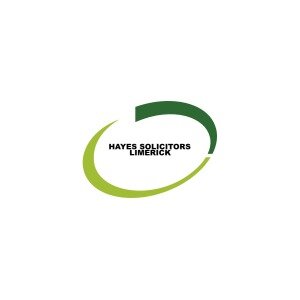Best Sexual Harassment Lawyers in Limerick
Share your needs with us, get contacted by law firms.
Free. Takes 2 min.
List of the best lawyers in Limerick, Ireland
About Sexual Harassment Law in Limerick, Ireland
Sexual harassment is a serious issue that can deeply impact individuals in workplaces, educational institutions, public spaces, and online settings. In Limerick, Ireland, sexual harassment is both a social and legal concern, with specific laws in place to protect victims and offer remedies. Irish law defines sexual harassment as any form of unwanted verbal, non-verbal or physical conduct of a sexual nature that creates an intimidating, hostile or offensive environment for the victim. These laws aim to ensure that everyone is treated with dignity and respect and that culprits are held accountable for their actions.
Why You May Need a Lawyer
If you have experienced sexual harassment, seeking the advice of a lawyer can be crucial. Legal professionals can help you understand your rights, explore your options, and guide you through the process of making a complaint or taking legal action. Common situations where people may require a lawyer include:
- Being subjected to unwanted sexual advances or comments at work or in education.
- Feeling threatened or unsafe due to repeated unwelcome conduct of a sexual nature.
- Experiencing retaliation after reporting sexual harassment.
- Not knowing how to report an incident or who to approach for help.
- Having a complaint dismissed or not handled properly by an employer or institution.
- Considering taking a case to the Workplace Relations Commission (WRC) or the courts.
- Needing help gathering evidence, documenting incidents, or preparing for a hearing.
Local Laws Overview
Sexual harassment is prohibited under several key Irish laws, which are fully applicable in Limerick:
- Employment Equality Acts 1998-2015: These laws protect employees and job seekers from sexual harassment and victimisation in the workplace. Employers are legally required to prevent and address sexual harassment.
- Equal Status Act 2000: This act protects individuals accessing goods and services, education, and accommodation from sexual harassment.
- Safety, Health and Welfare at Work Act 2005: Employers have a duty to provide a safe workplace, which includes protection from harassment of a sexual nature.
Victims of sexual harassment in Limerick may file a complaint with their employer, initiate a case with the Workplace Relations Commission, or in some circumstances, seek redress before the Civil or Criminal Courts. The law also protects victims from being penalized for reporting incidents.
Frequently Asked Questions
What qualifies as sexual harassment under Irish law?
Sexual harassment is any unwanted conduct of a sexual nature that has the purpose or effect of violating someone's dignity or creating an intimidating, hostile, degrading, humiliating or offensive environment.
Where can sexual harassment occur?
Sexual harassment can happen in the workplace, educational settings, in public, on public transport, online, and while accessing goods or services.
Is my employer obligated to protect me from sexual harassment?
Yes. Irish law requires employers to prevent and address sexual harassment. Employers should have policies and procedures in place to address complaints promptly and effectively.
What should I do if I experience sexual harassment at work?
You should record the incidents in detail, report your concerns to your employer or HR department following the internal procedures, and seek legal advice if the issue is not resolved or if you need guidance.
Can I make a complaint if the harassment happened outside of work?
Yes, under the Equal Status Act 2000, sexual harassment is also prohibited in places such as schools, colleges, shops, hotels, and other service providers.
What evidence should I collect?
You should keep a detailed record of what happened, when and where it occurred, anyone who witnessed it, and any communications (emails, messages) related to the incidents.
Will my complaint remain confidential?
Employers and relevant bodies are required to treat complaints confidentially as far as possible, but some information may need to be shared during the investigation or legal process.
What type of compensation can I receive if my complaint is upheld?
Possible remedies include compensation for distress and financial loss, reinstatement, or other corrective actions ordered by the Workplace Relations Commission or a court.
What if I am retaliated against for making a complaint?
Retaliation or victimisation for reporting sexual harassment is illegal and can be grounds for a separate legal claim.
How long do I have to make a complaint?
For cases brought to the Workplace Relations Commission, complaints generally need to be made within six months of the most recent incident, but in some circumstances, this period can be extended for up to 12 months.
Additional Resources
Several organisations and bodies offer support, information, and legal advice to people in Limerick dealing with sexual harassment:
- Workplace Relations Commission (WRC): Handles complaints related to workplace sexual harassment.
- Equality Authority (now part of the Irish Human Rights and Equality Commission): Promotes equality and provides guidance on rights.
- Citizens Information Centres in Limerick: Offer free information about rights and entitlements.
- Rape Crisis Midwest: Provides support, counselling and information for survivors of sexual harassment and assault.
- An Garda Síochána: The national police service, for cases involving criminal conduct.
- Legal Aid Board: Offers legal advice and representation to those who meet eligibility criteria.
Next Steps
If you have experienced sexual harassment in Limerick and need legal assistance, consider taking the following steps:
- Document every incident in detail, including dates, times, locations, and any witnesses.
- Check your workplace, school or institution's policy on harassment and follow any reporting procedures.
- Contact a lawyer who specialises in employment or equality law for a confidential consultation.
- If workplace procedures do not resolve the issue, consider submitting a complaint to the Workplace Relations Commission.
- Seek support from local organisations, such as counselling or advocacy services, for emotional support and practical advice.
- If you feel threatened or if a crime has occurred, contact An Garda Síochána immediately.
Taking action can help protect your rights and contribute to a safer community. Legal professionals in Limerick are equipped to support you throughout the process and will ensure that your case is handled with care and discretion.
Lawzana helps you find the best lawyers and law firms in Limerick through a curated and pre-screened list of qualified legal professionals. Our platform offers rankings and detailed profiles of attorneys and law firms, allowing you to compare based on practice areas, including Sexual Harassment, experience, and client feedback.
Each profile includes a description of the firm's areas of practice, client reviews, team members and partners, year of establishment, spoken languages, office locations, contact information, social media presence, and any published articles or resources. Most firms on our platform speak English and are experienced in both local and international legal matters.
Get a quote from top-rated law firms in Limerick, Ireland — quickly, securely, and without unnecessary hassle.
Disclaimer:
The information provided on this page is for general informational purposes only and does not constitute legal advice. While we strive to ensure the accuracy and relevance of the content, legal information may change over time, and interpretations of the law can vary. You should always consult with a qualified legal professional for advice specific to your situation.
We disclaim all liability for actions taken or not taken based on the content of this page. If you believe any information is incorrect or outdated, please contact us, and we will review and update it where appropriate.











